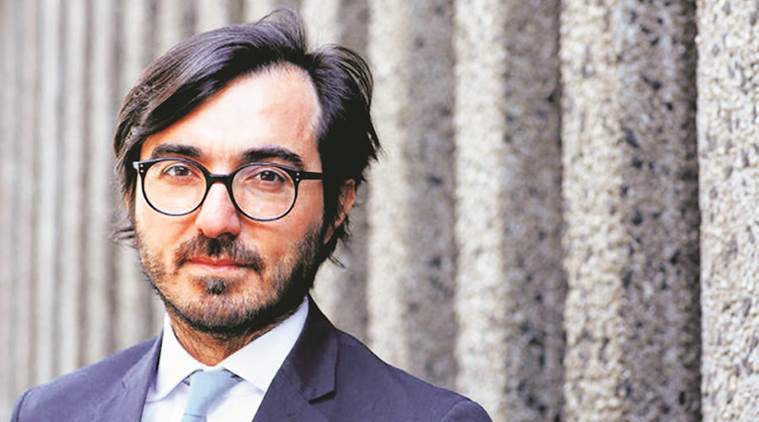 MUBI CEO and Founder Efe Cakarel
MUBI CEO and Founder Efe Cakarel
To take on streaming platform giants with a streaming platform of your own takes confidence and chutzpah. And Efe Cakarel, Founder and CEO of MUBI, has both, in spades. He also has a sense of fun, knowing when to be self-deprecating and when to push for it. This was evident at a session with Kiran Rao, who has been an enthusiastic subscriber, and later when he spoke with The Indian Express, on how he sees what he sees.
Even a few years back, the world was confined to the big screen and the box. Today, you can’t think of viewing choices without taking into reckoning Netflix and Amazon and Disney. Cakarel believes Apple and Google are going to jump into the fray, sooner rather than later, and the only way to beat the Big Five is to join them, but with a differential built in.
His USP? MUBI gives you a movie a day, and 30 films, mostly art-house, to pick from. Is this one-movie-a-day laughable if you have both Netflix and Amazon, bursting with movies and TV serials and shows? Cakarel says that you could spend a lot of precious time trawling through the offers and then often not being able to find anything you like. Sometimes, having no choice can be enormously liberating; as a practising film critic, I know how that feels.
“You know that video store guy who hears what you are in the mood for and pulls out exactly what you want to watch? The one you used to keep returning to? We want to be that guy behind the counter of that store.”
At MUBI, it is all about curation. Only movies, chosen by movie-mad geeks. No TV, no shows, no sports. After 30 days, the movie goes off, a fresh one comes in, and a fresh cycle starts. Cakarel has ambitious plans for India. As prep, has he seen any Indian movies that he absolutely loves? “Yes, the Apu Trilogy. I’ve only seen it about five years ago. And I think those who haven’t, lead a very sad existence.”
In India, he knows that he will have to build in even more differential for the madly diverse audience. “A Tamil channel, a Marathi channel, yes, that’s what we are preparing for.” And he also knows that you have to be prepared to create original cinema by putting your money where your streaming mouth is: production is part MUBI’s plans. And in London, he is spearheading a theatre which will stream the kind of independent cinema that MUBI likes to show.
How about the same thing in India? A theatre which will programme the kind of independent films that get lost in the conventional distribution pattern? Why not, he says, and yes, may be more than one, because he is learning that “there is more than one India in India”.